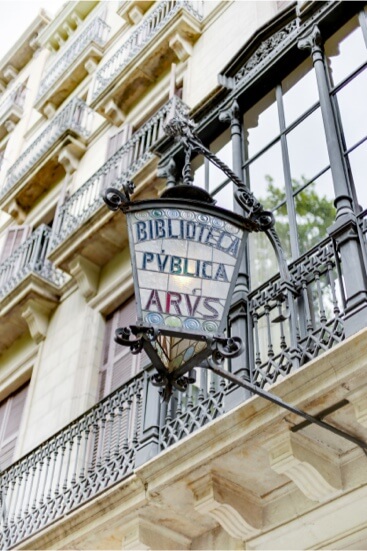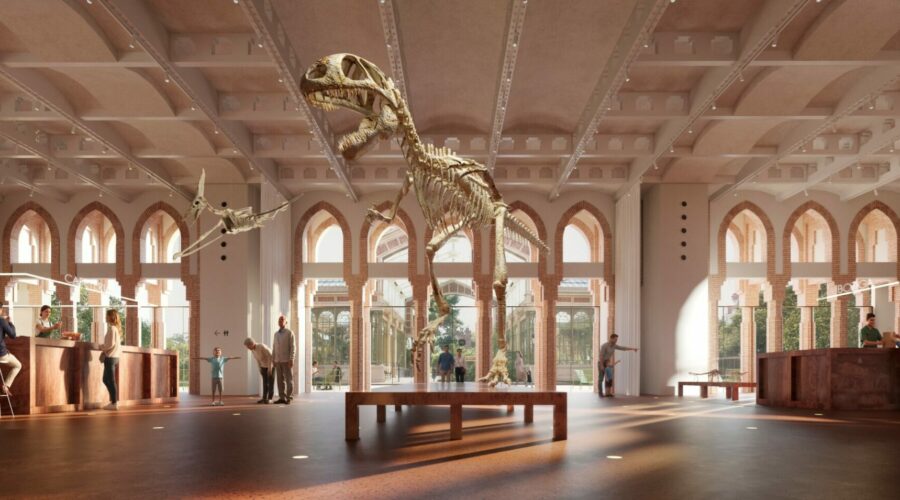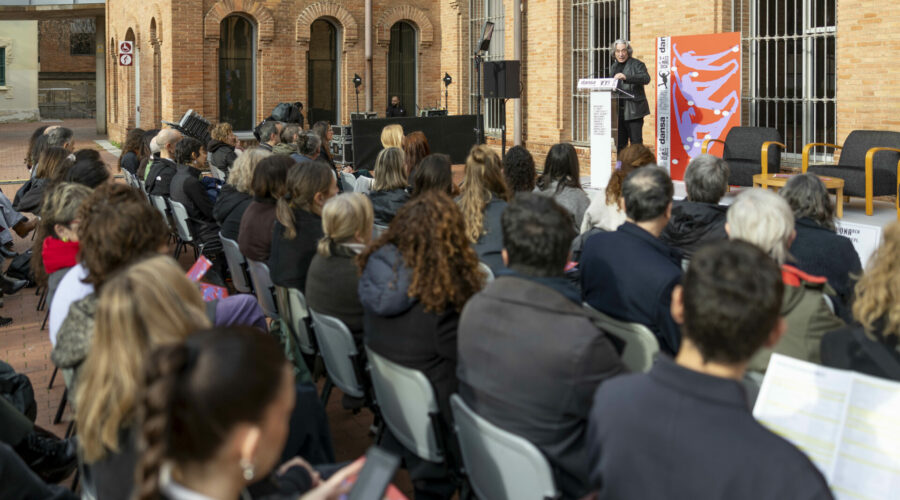Hidden in the Eixample district, the Arús Library of Barcelona is one of the most outstanding cultural jewels of the city. It is a must visit to find a rich history and a specialized documentary collection that makes it a reference in research. This particularly on topics such as Freemasonry, anarchism, socialism and the labor movement. The Arús Library is also known for being one of the few places in Barcelona that has a specific collection on Sherlock Holmes, the famous detective created by Arthur Conan Doyle. This curiosity makes the library a destination of interest for fans of literature and mystery.
Arús Library

The library opened its doors in 1895, as one of the first public libraries in the city. It is located on Paseo de San Juan, in the Dreta de l’Eixample neighborhood. Its creation responded to the need to provide access to information and knowledge to the working classes. It quickly became a meeting place for intellectuals and social activists of the time.
One of the most notable aspects of the Arús Library is its specialization in subjects related to Freemasonry, the labor movement, anarchism and socialism. The library has an extensive collection of more than 80,000 volumes, including books, newspapers, pamphlets, manuscripts and graphic materials dating from the 19th century to the present day.
Masonic publications
Among the most valuable treasures of its collection are Masonic publications and an important number of books on revolutionary and political movements that had a significant impact on the history of Europe and Latin America. This specialization makes it a fundamental space for researchers and scholars of contemporary history, particularly on issues of freedom and social struggle.
Another great attraction of the library is its important archive of historical press, which includes headers of anarchist and socialist publications from the late nineteenth and early twentieth centuries. These documents allow first-hand study of the ideas and debates that influenced the development of the political currents of the time.
Freedom and justice
The building where the Arús Library is located is another of its distinctive features. The building, which was the residence of Rossend Arús, is a magnificent example of 19th century neoclassical style. The main entrance is adorned with a sculpture of the Statue of Liberty, underscoring the values of freedom and justice that Arús championed.
The interior of the library has been preserved largely as it was in the time of its founder, with a cozy and classic atmosphere that evokes the time when the first readers came to it in search of knowledge. The main room features original furniture and wooden bookshelves, housing a rich collection of antique volumes. The entire space reflects a sense of solemnity and historical importance, ideal for research and study.
Today, the Arús Public Library continues to be an institution of reference in the city of Barcelona. It has been able to adapt to modern times, with the digitization of part of its collections and the organization of cultural activities and temporary exhibitions. This while maintaining its essence as a place of consultation and study for subjects little treated in other cultural centers.
In addition to its function as a public library, Arús regularly organizes conferences, seminars and guided tours. These focus on different cultural and literary aspects that are part of its rich collection. The Arús Library continues to be a pillar of knowledge and historical memory in Spain. It is also an indispensable resource for scholars and researchers from all over the world.
Image courtesy of https://bpa.es, all rights reserved.



